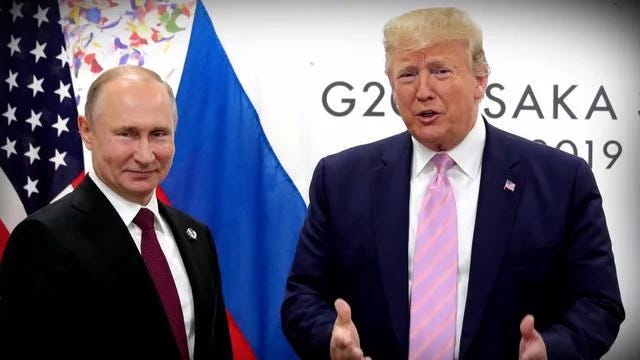The art of no deal in Alaska
Trump has enormous leverage with Putin – if he's willing to use it. Including walking away.
It’s Thursday and we are all thirsty for some Hot Takes Happy Hour. Join me and Danielle Pletka TODAY at 5:30p ET/2:30 PT. Come for a preview tomorrow’s Alaska summit between President Trump and Russian President Putin. Stay for debate on gerrymandering, the federal takeover of D.C and more!




